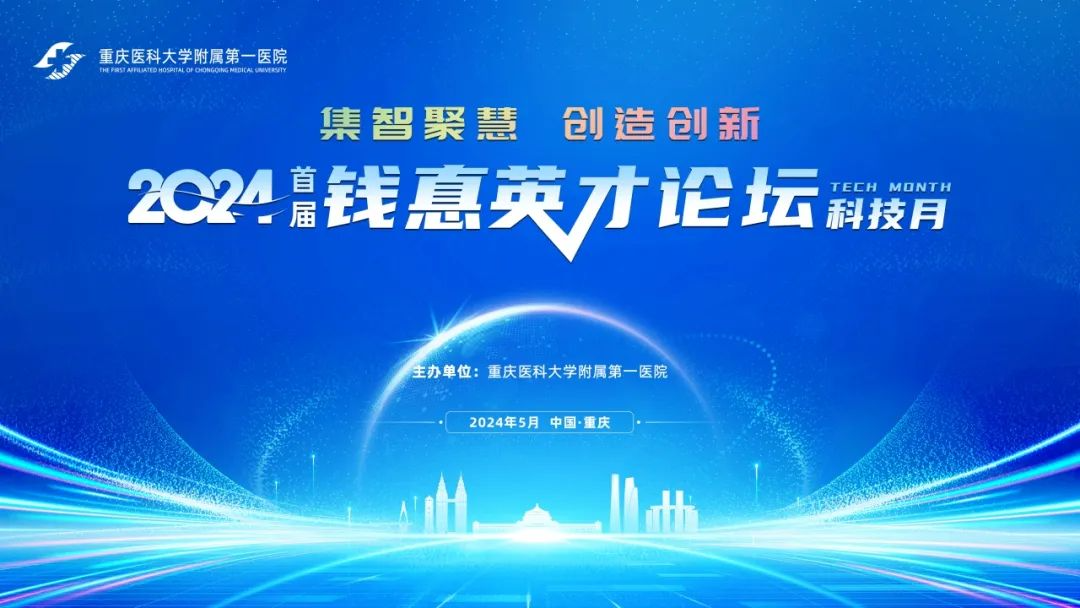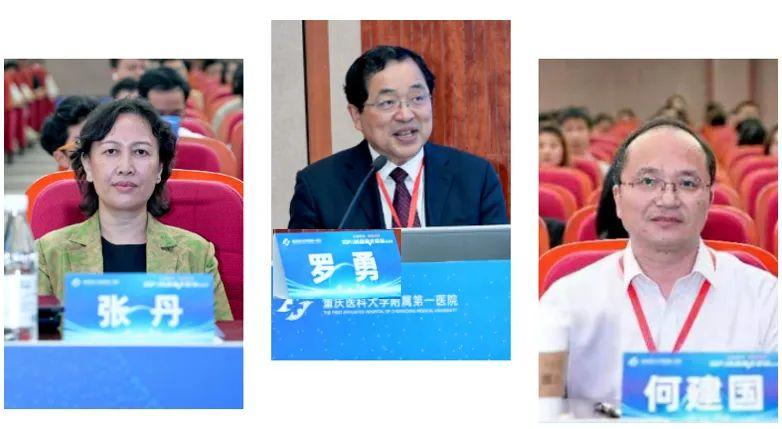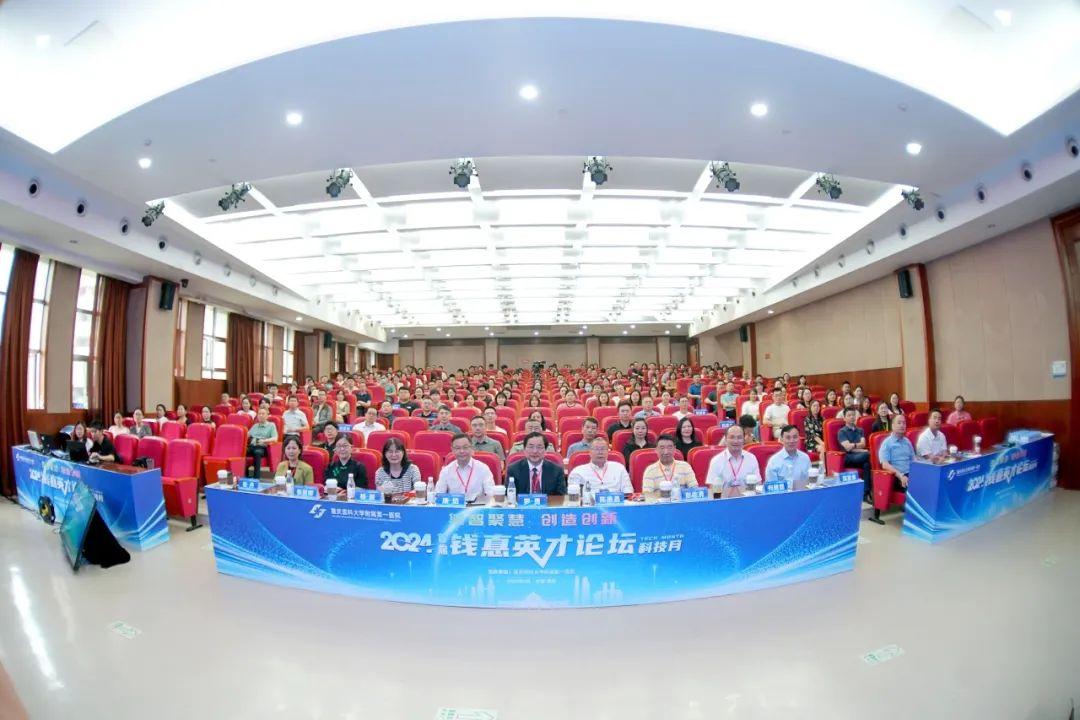Critical Care Elite Forum of “Qian Qian Forum of Excellence” was held.

General Secretary Xi Jinping pointed out that the development of new productivity is the inherent requirements and important focus point for promoting high-quality development; scientific and technological innovation is the core element of the development of new productivity. Focusing on injecting innovation into the hospital's disciplinary construction and cultivating an innovative culture for the hospital's high-quality development, the “2024 First Qian Qian Forum of Excellence” of the First Affiliated Hospital of Heavy Medicine kicked off in May, which attracted the active participation of experts and scholars in many related domestic specialties, and became an important platform for scholars to share the latest research results, exchange innovative thinking, and enhance academic cooperation. It has become an important platform for scholars to share the latest research results, exchange innovative thinking and enhance academic cooperation.
Focusing on the hotspots and difficulties at the forefront of critical care medicine, and exploring new theories, technologies and methods, the “First Qian's Excellence Forum - Critical Care Elite Forum” was held on May 28 in the First Affiliated Hospital of Critical Care Medicine (FACHM). Luo Yong, president of the First Affiliated Hospital of Critical Care Medicine, and Zhang Dan, vice president of the First Affiliated Hospital of Critical Care Medicine, attended the forum, which was presided over by He Jianguo, vice president.

The forum invited 5 famous experts in the field of critical care to give a wonderful report. More than 200 people from each critical care ICU of the hospital, Chongqing Alliance of Critical Care Medicine of the Medical Union, regional quality control centers of critical care, as well as residents, special training, advanced training students and postgraduates attended the meeting.

Focusing on the high-quality development of critical care medicine, Mr. Chen Dechang, Director of the Department of Critical Care Medicine of Ruijin Hospital, Shanghai Jiaotong University, introduced the history of China's critical care medicine from its humble beginnings to its prosperous development over the past 40 years, and emphasized that the high-quality development of China's critical care medicine could not be separated from the support of the national policy, the leadership of the Society, and the construction and management of the departmental units, and that the medical ability, teaching ability, scientific research ability, prevention ability, and management ability were the key factors for the high-quality development of critical care medicine. He emphasized that the quality development of critical care medicine in China cannot be achieved without the support of national policies, the leadership of societies and the construction and management of departmental units, and that medical capability, teaching capability, scientific research capability, prevention capability and management capability are the five major grasps for the high-quality development of critical care medicine.
Focusing on the informatization and intelligence of critical care medicine, Yang Yi, Director of Department of Critical Care Medicine of Zhongda Hospital Affiliated to Southeast University, reviewed the transformation of the diagnosis and treatment mode of critical care medicine brought by scientific and technological innovations, affirmed the promotion of the development of critical care medicine by the optimization of artificial intelligence, and introduced the impact of informatization and intelligence on the diagnosis and treatment mode of critical care. At the same time, she pointed out that “there are still many unknown areas of artificial intelligence, and in the future, critical care medicine still needs to transform the diagnosis and treatment mode, move from clinical diagnosis to molecular diagnosis, and use artificial intelligence to serve clinical diagnosis and treatment.”
How to improve the rescue rate through accurate treatment in blood purification? Zhiyong Peng, director of the Department of Critical Care Medicine at Zhongnan Hospital of Wuhan University, discussed the latest progress of sepsis blood purification treatment and related research from three aspects: searching for sepsis subtypes that can benefit from blood purification, deciding the biological/clinical criteria for initiating blood purification treatment, and exploring new clearance targets for sepsis blood purification treatment, which provides a new basis for clinical diagnosis and treatment.
“The implementation path of critical care research practice is to ask scientific questions and solve scientific problems.” Lina Zhang, Director of Critical Care Medicine Center, Xiangya Hospital, Central South University, shared her personal growth experience and provided useful reference for young doctors on how to do well in clinical and scientific research from the aspects of clinical research, teamwork, and multidisciplinary construction.
Mr. Kang Yan, the president of West China Tianfu Hospital of Sichuan University, shared the process of the Department of Critical Care Medicine of West China Tianfu Hospital from new construction to rapid development. He took the example of the Department of Critical Care Medicine of Guang'an Hospital as the bottom of the whole hospital's specialties, and shared the feasibility and necessity of driving the road of high-quality development of hospitals through the development of the Department of Critical Care Medicine.
This forum provided new ideas for scholars in the specialized field, injected new impetus for the discipline construction of critical care medicine, and provided a new communication platform for the innovative development of critical care medicine.
Translated with DeepL.com (free version)




